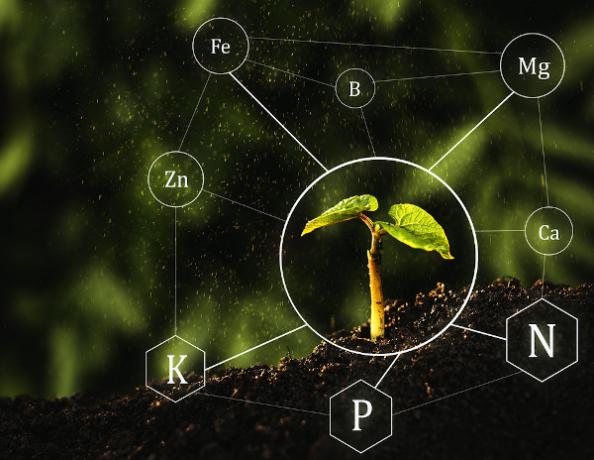O boronis a semimetal belonging to the 3A family or group 13, with five protons in its structure. Boron makes three bonds due to hybridization sp2, the composite being an exception to the octet rule. It is a low reactive semiconductor, light, which adds mechanical strength and corrosion resistance to materials such as steel alloys and glass, thus being used in aerospace equipment, civil construction, and sporting goods.
the boron plays important roles in plant and animal metabolism, acts on at least 26 plant enzymes, and, in the human body, helps in the absorption of calcium, magnesium and phosphor.
Read too: Niobium - metal with various industrial and commercial applications
boron properties
Symbol: B
atomic mass: 10,811(7) u
atomic number: 5
electronegativity: 2,04
electronic configuration: 1s² 2s² 2p¹
chemical series: group 13 semimetal or 3rd family
Periodic Table Period:2°

Boron Characteristics
not a good conductor.
It has high hardness.
It has high mechanical strength.
Aspect: powder, solid at room temperature, amorphous, dark gray in color
It has low reactivity.
It is found only as part of other compounds, such as:
- boric acid (H3BO3);
- boron trioxide (B2O3);
- borax (Na2B4O7.10h3O).
Tends to perform covalent bonds.
It has hybridization of the sp2 type.
boron history
O boron name he came of the terms hole or burah,of Arabic and Persian origin respectively. Boron compounds were used in antiquity by the Chinese, Egyptians and Babylonians. Borax tempered glass was made by the Chinese in the 19th century.éçhello III, and historical accounts describe that, in the 13th century, objects containing boron in their composition were taken to Italy by the explorer and ambassador Marco Polo.
Obtaining pure boron and its discovery as a metalloid took place in a trajectory in which several scientists and scholars took part. Joseph Louis Gay-Lussac, Humphry Davy and Louis Jacques Thénard, in 1808, they managed to preparer One fóimpure boron formula, call boracium, by reducing boric acid with potassium.
the boron was classified as a chemical element in 1824, by Jacob Berzelius, considered the father of modern chemistry, he obtained the element by reducing the boron fluoride salt, yet not completely isolating it. Only in 1909, in the United States, Ezekiel Weintraub succeeded, through a mixture of boron chloride (BCl3) vaporized and hydrogen, fully isolate the boron element.
See too: What are the names of the new chemical elements?
Obtaining boron
Boron is an element that is not free in nature, it is always associated with other minerals and substances. There are 150 compounds containing boron, and the elements commonly present in this combination are calcium, magnesium and sodium. The geological occurrence of boron occurs mainly in regions with volcanic activity, where the minerals borax, kernite, ulexite and colemanite are found, the main sources of boron used commercially.
The largest borax reserves are located in Turkey and the Mojave Desert in California.. It is also possible to find boron in marine regions, in the soil and in plants, but in a smaller concentrated quantity.

THE amorphous boron extraction, impure powder, used in pyrotechnic articles, can be made by reduction of boron trioxide with magnesium, having as final product boron with purity from 95% to 98%:
B2O3 + 3Mg → 2B + 3MgO
Boron, in its purest form, is obtained by the reaction between boron trichloride or tribromide vapor and hydrogen into heated filaments.
Boron Applications
Applied in the process of mummification, at Antique, by the Egyptians.
Used by European artisans in the manufacture of jewelry due to its lustrous appearance.
Applied in the manufacture of glasses tempered (resistant glasses).
Applied in the manufacture of candles.
Applied in the manufacture of anticorrosive products.
Used in chemical analysis of oxides.
Kernite, a mineral composed of boron, is used in the civil construction and nuclear technology sectors.
Fibers composed of boron are resistant and light, being used in aerospace equipment and sports products, such as golf clubs, rackets and fishing poles.
Boron compounds, such as borax and boric acid, are effective germicides and insecticides, especially against cockroaches, as they weaken your digestive system.
It is part of the composition of rare earth magnets or neodymium magnets, applied in electronic and electromechanical devices and in magnetic resonance.
It has an important role in animal and plant physiology, acting on metabolic processes related to bone structure and mineral production. It has been widely applied in the production of supplements for the treatment of calcium, magnesium and vitamin D.
Also access: Iron - another essential element for maintaining our health

solved exercises
Question 1 - (COMVEST) The discovery of the element boron (Z = 5) is attributed to Sir Humprey Davy, Gay Lussac and L. J. Thenard, in 1808, simultaneously in England and France. Just based on its atomic number, a lot of information about its properties can be inferred. Below are some of these properties, but only one is correct:
A) Its most common oxidation state is 2.
B) The Lewis structure of your diatomic molecule is :B: B:
C) It must form molecules in which the boron atom does not obey the octet rule.
D) Does not form covalent compounds.
E) It is an element from the third period of the periodic table.
Resolution
Alternative C.
A) Wrong - The state of oxidation most common boron is 3.
B) Wrong - The Lewis structure applicable to the diatomic boron molecule is B=B.
C) Correct - Boron is an exception to the octet rule, it has sp2 hybridization, being stable, therefore, with six electrons in the valence layer.
D) Wrong – Boron forms covalent compounds, being able to make three covalent bonds.
E) Wrong - Boron belongs to the second period of periodic table.
Question 2 - Review the following statements about the element boron, and judge them as true or false.
I – Boron is an ametal, having six electrons in its natural atomic structure, as it escapes the octet rule.
II – Boron is used in the formulation of nutritional supplements for the prevention of osteoporosis.
III – Boron is used in the manufacture of tempered glass and steel alloys, as it adds mechanical resistance to these materials.
a) Only I is correct.
b) Only III is correct.
c) I and II are correct.
d) II and III are correct.
e) All are correct.
Resolution
Alternative D.
I - INCORRECT: boron is not a ametal and it does not have six electrons in its original atomic structure. he really is a exception to the octet rule, but it only stabilizes with seielectrons in the valence layer when it binds to another atom.
II – CORRECT: boron helps in the absorption of essential nutrients in the bone structure, such as calcium and magnesium.
III - CORRECT: boron is an element that has high hardness and low reactivity, and when applied to metals, it adds strength to the alloy mechanical and corrosive, the same happens in the case of tempered glass, the main concern, in this case, is in relation to resistance to frictions.
By Laysa Bernardes Marques
Chemistry teacher

